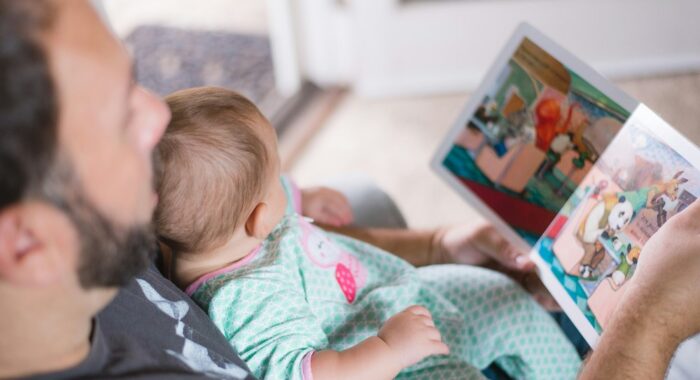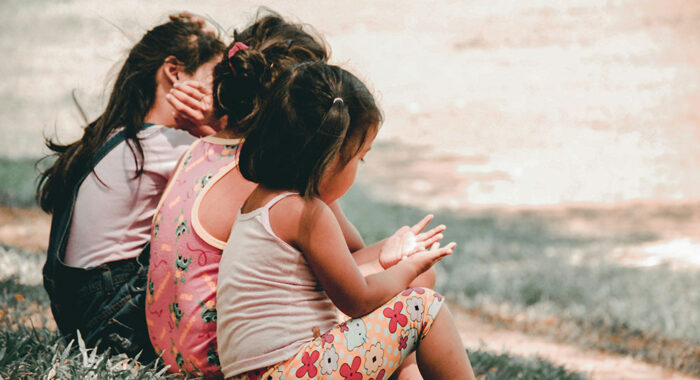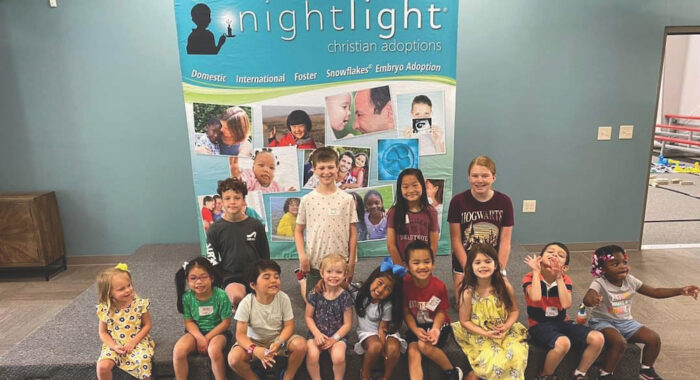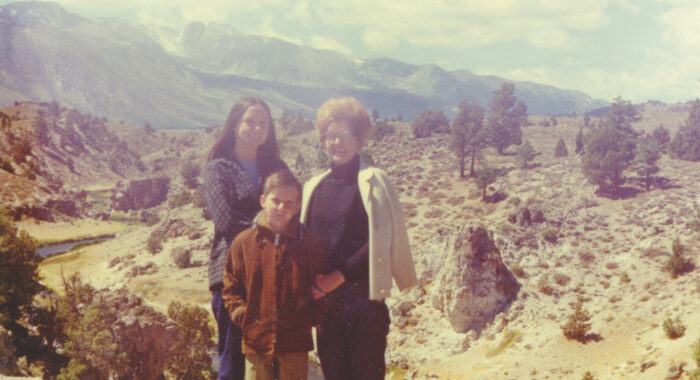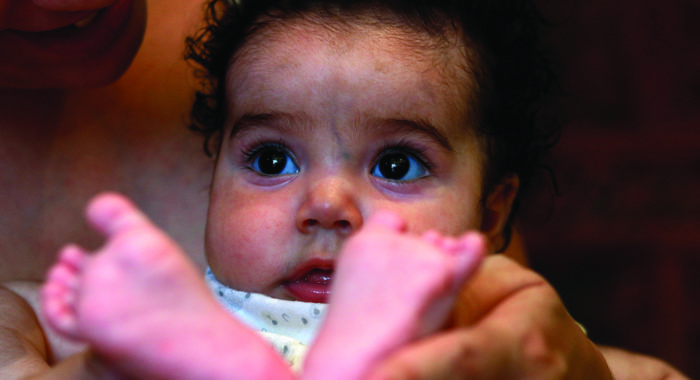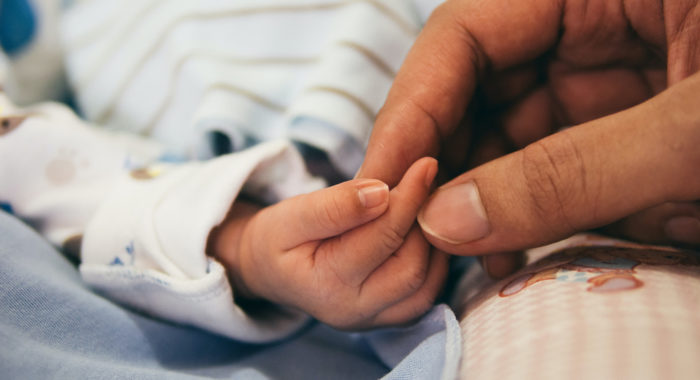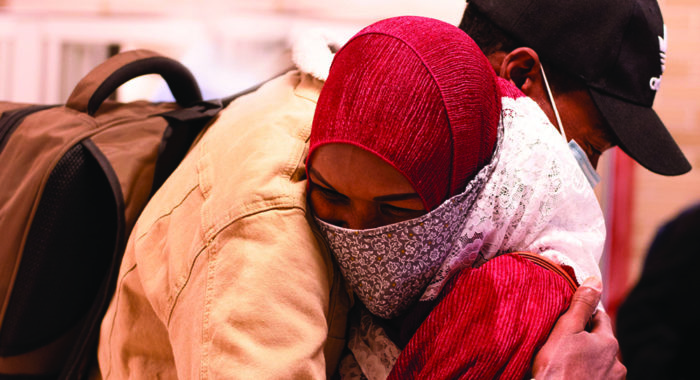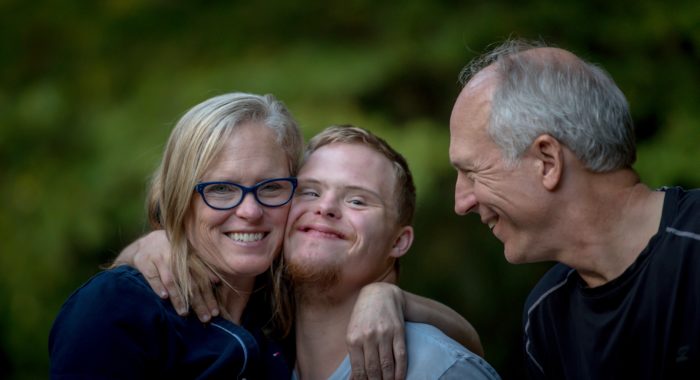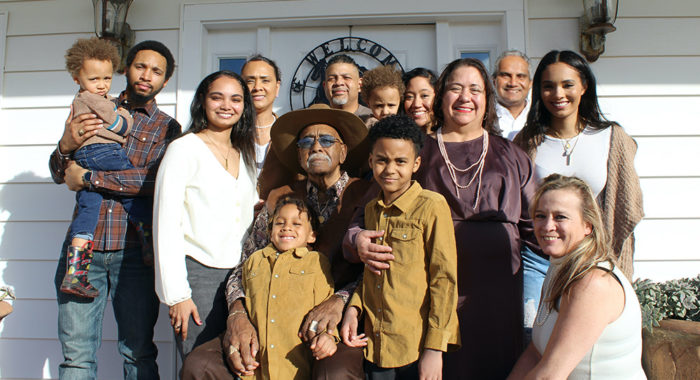The most awe-inspiring fireworks display has nothing on the tiny show taking place inside a newborn’s brain. Billions of neurons, already in place by birth, replicate and then tether themselves to each other, creating the foundational circuits that enable hearing, sight, thought, emotion. The world is, indeed, “charged with the grandeur of God,” as Gerard Manley Hopkins put it — even at the microcosmic level.
Human development is not a solo act but rather a multi-part ensemble, taking place across bodies and minds. An infant develops through a multitude of tiny interactions with the people around her. Arms wrap around a floppy baby body. Adult eyes meet infant eyes. A voice names an object while fingers point. Each of these interactions affects a baby’s brain, sparking neural growth, lowering the stress hormones that inhibit development, establishing the inter-personal synchronicity from which comprehension, learning and problem-solving skills emerge.
The people who are most integral to the astonishing interpersonal process at the heart of human development have a name: family.
Science corroborates what Christian theology and practice has long embodied: the deep worth of family. Christ’s first miracle was in service of a family-forming ritual, a wedding (John 2:1–12). The letters shared among early followers of Jesus described the essential reality of life under God’s grace through a family metaphor: adoption (Romans 8:14–15, Galatians 4:5–7). Older biblical texts tell us that God embedded a divine covenant with humanity into the institution of family, assuring a once-childless couple that they would have descendants as numerous as the stars in the sky and linking persistence in a God-given homeland with honoring one’s family (Genesis 15:5; Exodus 20:12).
“A Particular Kind of Love”
Allison Gopnik, a psychologist who spent decades studying child development concluded that we should not think of parenting as a verb. To parent is not only to execute a series of tasks. Instead, parenting should be understood, fundamentally, as a relationship, “a particular kind of love.” Familial love is both unconditional and specific, she said. When a grandfather bounces his grandchild, it is that particular child whose weight rests on his knee. When a mother locks eyes with a nursing baby, it can feel as if they are the only two beings in the world. Amazingly it is this kind of attention that seems to set off the microcosmic brain-building that is essential to all other phases of human development.
This is not unlike the account of familial love referenced in the New Testament. Through grace, we’re enabled to cry out to God, using the intimate term “Abba, Father” — a personal form of address that suggests the trusting dependence of a child. Elsewhere, Jesus describes God as gentle, anticipating our vulnerability, offering respite. “Come to me all you that are weary and are carrying heavy burdens,” Jesus says, “and I will give you rest” (Matthew 11:28).
Belonging to a Greater Narrative
If love is one of the intangible conditions of human flourishing that families provide, rootedness is another.
This summer, my parents, husband, children and I took a 10-day journey to my home state: Wisconsin. We visited the dairy farm tended by one set of grandparents and the small town where my great-grandmother taught dance for a living. The road trip idea emerged in response to pandemic-induced disconnection. To recover, we needed to encounter something about ourselves that we could not learn only by ourselves.
One of the crises of modern life is that of rootlessness. All manner of contemporary struggles — from the loneliness epidemic to deaths of despair — have been attributed to rootlessness. We cannot fully thrive when see ourselves, as Jake Meador has explained, as “closed-off individuals, self-defined and self-determined.” Although my children and I had not fallen into despair during the pandemic, we easily could have. Having spent hours attached to screens, we felt locked into the seemingly urgent present. Encountering family history reminded us that we belong to something larger than ourselves and this present moment.
Church Support for Families
On certain Sundays, my church sets down a patchwork quilt on the sanctuary floor. Children play on its colorful squares while parents, grandparents and godparents listen to the sermon, sing praise and speak prayers. With the quilt, the church acknowledges and protects space for the families in its midst. Every congregation should, in its own way, roll out a welcome quilt for families. So, too, should our political community protect space for family life.
Many congregations extend welcome and support to families by offering child care and preschool programs. Several decades ago, at the likely high-point for congregation-based care, one out of every three churches in America hosted a child care program, according to a National Council of Churches study. Many families continue to entrust their children to faith-based child care. A 2020 survey by the Bipartisan Child Center indicated that 14 percent of parents would choose a faith-based child care center as their ideal arrangement for their youngest child, second only to the 22 percent who preferred to provide care for their own child.
The need for child care among American families is growing. The Center for America Progress notes that over half of the American population live in child care deserts: communities with more than three times as many children as there are licensed child care options.
Congregations can also organize support for families with intensive caregiving needs. Many adoptive and foster parents, particularly those caring for children with trauma histories, benefit from consistent and capable support: regular meals, errand-running, friends who take the time to get to know and mentor their children. Families caring for a member with a major injury or long-term illness are often in a similar situation. In both cases, families report sometimes experiencing an initial burst of support that disappears over time even though their needs do not. All congregations should consider what it looks like to accompany families with caring responsibilities that extend long after the first prayer requests have been made.
Churches can also encourage families to cultivate rootedness. For some families, heritage and church life are implicitly connected. Sacred songs, the after-church potluck dinner, remembering a church’s founders can help families retain a connection to their past. A healthy practice of rootedness does not simply preserve the past but also reckons with it.
Lisa Sharon Harper, a Christian author whose memoir, “Fortune,” traced the impact of the intercontinental and transatlantic slave trade on her own family, encourages congregations to help members uncover family roots. She recently organized a congregational pilgrimage from Chicago to Charleston, South Carolina, to encounter places where many African Americans’ ancestors had been trafficked. She is teaching another church the practice of genealogy.
“The work of genealogical research,” Harper says, “has the power to reconnect us with the stories of our people and with our ethnic heritage.” We need family stories to confront the cost of sin, to lay claim to heritages of resilience, and to catalyze truth-telling, repentance and repair that can upend long-standing injustices.
Alleviating Stress on the Family
Political communities can support family life, too. During the second World War, several of the world’s industrialized nations began to develop family pension systems to provide a regular income supplement to help families with the cost of raising a child. Such a family-oriented benefit first became available in the United States in the 1990s with the establishment of the child tax credit (CTC).
The child tax credit provides a baseline financial resource to help families’ meet needs. Surveys indicate that families commonly use their credit to pay off debt, to cover child care costs, or to purchase school supplies. But existing programs like the CTC or yet-to-be enacted ideas such as universal paid family leave could have an impact on families beyond material aid.
Persistent economic stress can affect foundational familial practices such as attention. Scarcity can orient parents’ minds toward always solving the next problem: which bill to pay next, how to cover rent. Policies such as the child tax credit and paid family leave are valuable not because they offer a substitute for familial love but because they empower families to love well, with full attention.
A Legacy to Protect
The God who helped Abraham see his families’ legacy within a vast sky, who invites people to call him, “Abba, Father,” is a God who made humanity for love and belonging. The human need for relationship, interdependence and even vulnerability is not shunned by God but rather given to us by him. It should be no surprise to us, then, when science reveals human development as not a solo but rather a deeply interpersonal event. Connectedness is the default, the norm of human life.
Modern culture sometimes misdirects us away from connectedness. Online media and commerce captivate our attention with a constant sense of urgency. Advertising promotes personal perfection through consumption. Self-motivated striving and savvy negotiation are presented as essential to economic success. Families, in contrast, offer belonging regardless of one’s accomplishments, potential, market value or brand. Families should provoke our awe. They are worth making space for. They are worth protecting.
Write Congress about the child tax credit ![Arrow]()
Rachel Anderson is a resident fellow for the Center for Public Justice and founder of its Families Valued project. Her work focuses on work and family policy, and faith-based civic engagement. Previously, Anderson served as the director of faith affairs at the Center for Responsible Lending, where she worked with faith leaders at the state and federal level to advocate for protections against predatory lending. She was the co-founder of the Boston Faith & Justice Network, which engages Christians in biblical justice through spiritual formation, community organizing and advocacy. Anderson is a graduate of Harvard Law and Divinity schools.




 View All Articles
View All Articles 




